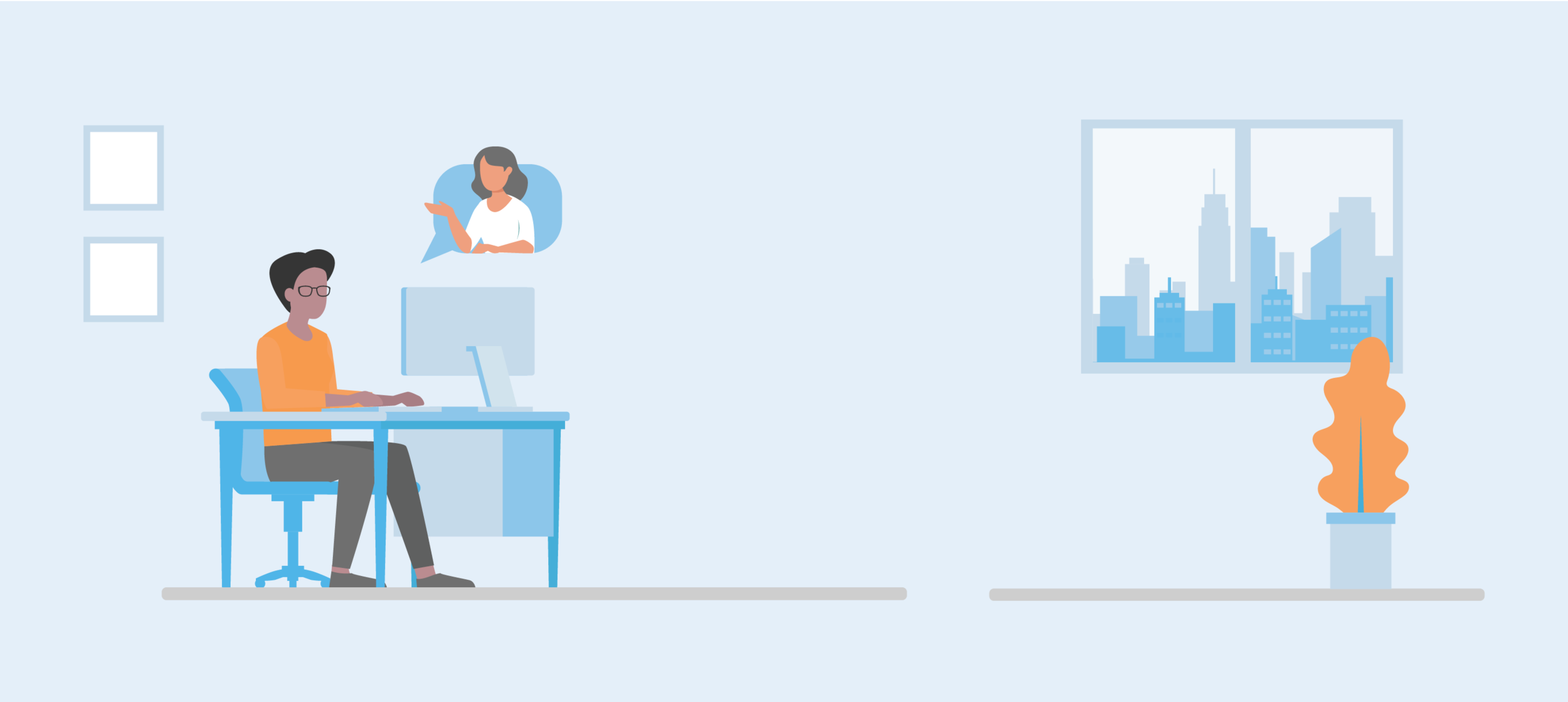
How to put yourself first at work
Unfortunately, we’re seeing many unstable workplaces in the new year—holiday unemployment, job changes, layoffs, and downsizing are all common and current workplace challenges. If you’re in this boat, or you’re feeling anxious about these rocky times in the workforce, you aren’t alone. With several layoffs occurring—especially across tech, media, finance, and retail—in 2023 and the beginning of 2024, it’s normal to feel anxious.
I have anxiety about entering an on-site work environment after working remotely
Experiencing anxiety because you have to go into the office after working in a remote environment? Maybe your work was temporarily remote because of the COVID pandemic or maybe you had a career change from a hybrid or remote organization to an on-site organization. Whatever the reason for reentering an onsite work environment is, it’s an understandable adjustment that can cause stress. Although there are pros and cons to both work environments, it’s common to have anxiety around going back to an onsite work environment.
Navigating an anxiety disorder in the workplace
Occasional feelings of anxiety are common and everyone has them from time to time. But what if you’ve been diagnosed with an anxiety disorder? Navigating an anxiety disorder in the workplace can be extremely challenging, especially when your coworkers may not know the difference between common anxiety and your specific disorder.
Addressing burnout takes more than self-care
Curbing the burnout epidemic will take more than workers’ self-care techniques. People need more autonomy and support to prevent becoming depleted on the job.
How to care for yourself when work doesn’t care about you
Do you feel like you’re putting all of the time, effort, and patience into your job, but your job or your boss isn’t returning the favor? A non-reciprocal relationship with work can be draining, defeating, and can cause feelings of helplessness. So, how do you care for yourself when work doesn’t seem to care about you?
How to cope when the boss’ mental health affects you
At some point in your working life, you may encounter a manager or business owner whose mental illness or personal challenge affects you. The problem isn’t yours to solve, but you can protect your well-being.
Behind the Research of the Surgeon General's Workplace Well-Being Framework: Q&A with Project Lead, Ashleigh Reeves
Over the past year, Empower Work collaborated with the Office of the Surgeon General (OSG) as they explored a critical question: “How can workplaces be an engine for well-being?” Our team had the pleasure of working with Dr. Vivek Murthy’s research team, including Ashleigh Reeves, Project Lead, OSG Innovation and Design Team, as they explored new recommendations for workplaces rooted in worker voice. And our founder, Jaime-Alexis Fowler, was honored to be part of the launch for the new framework this fall.
In December 2022, Jaime-Alexis sat down with Ashleigh for a digital “fireside chat” with the Empower Work community to dig into the research behind the framework. This is a transcript of their Q&A as they took a look behind the scenes at how the pieces came together.
The State of Work is a Public Health Crisis
Work in the U.S. is not working. 47.8 million workers quit their jobs in 2021, an average of 4 million per month. The data is clear. But the lived experiences of workers are missing. Those experiences point to a public health crisis.
Waiting tables was one of the best jobs I’ve had. Here’s how a caring employer made a difference.
Barbara Saunders, an Empower Work staff member, shares her positive work experience waiting tables and shines a light on how a caring employer can make a difference in your mental health. She illustrates how a sad work event turned into reflections about the workplace and a valuable lesson: We all deserve to work in a place where we feel supported even in very difficult times.
I’m burned out at work. What can I do?
If you’re feeling burned out at work, you’re not alone. A recent poll found that 95% of workers are thinking about finding a new job—and a third of respondents cited burnout as the reason why. Given the unprecedented ongoing stressors of the COVID-19 pandemic and the ensuing economic recession, against the recent backdrop of racial violence and political turmoil in this country, these high rates of burnout are no surprise. Here’s what you can do.
Prioritizing BIPOC Mental Health At Work
Mental health struggles can affect everyone, regardless of race, gender, age, industry, or income bracket. If you identify as Black, Indigenous, or a person of color (BIPOC), you are likely all too aware that racism and racial trauma can add an additional layer of complexity to mental health struggles. If you’re looking for ways to prioritize your own mental health at work, or wondering what you can do to support BIPOC coworkers or employees, here are a few places to start.
How the Pandemic Has Affected Workplace Mental Health
The American workplace was unprepared for the COVID-19 pandemic and the effect it would have on workers. Employees report being more stressed, more anxious about financial well-being, and more worried about their physical and mental health than ever. So how can our workplaces protect our mental health in 2021 and beyond?












